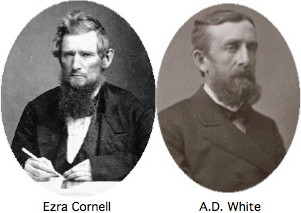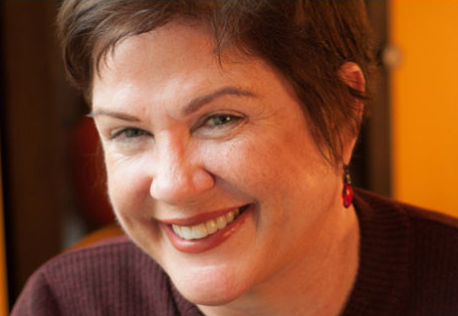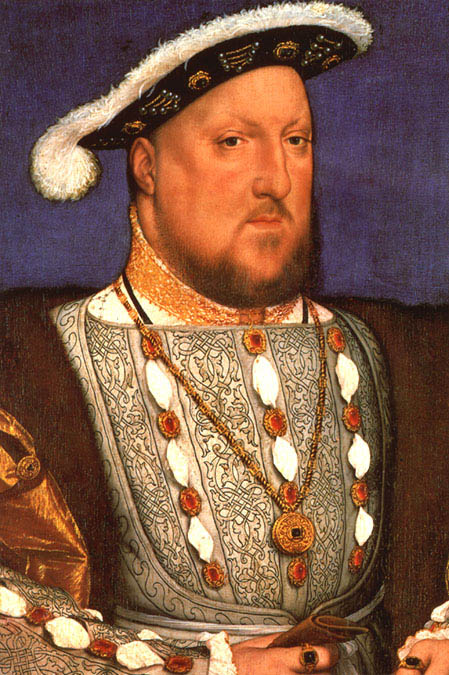This Week in Freethought History (October 6-12)
Here’s your week in Freethought History. This is more than just a calendar of events or mini-biographies – it’s a reminder that, no matter how isolated and alone we may feel at times, we as freethinkers are neither unique nor alone in the world.
Last Sunday, October 6, but in 1536, the priest and scholar William Tyndale was strangled and burned to death in Belgium. He was born on an unknown date in 1484 and developed an attachment to reformist ideas in religion. In London, Tyndale conceived the idea of translating the Bible into vernacular English, so that even “a boy that driveth the plough” might... not read the book, of course, because literacy was in the single digits at the time, but understand the words in English, rather than the original Greek and Hebrew. Translation was opposed by clerics. For his safety, Tyndale crossed to Europe and found friends and hiding places where he could spend the time it took. Circulating Tyndale’s translation would have been impossible without Johann Gutenberg and the printing press, which had been invented only in the previous century, and might have been prevented altogether when a loose-lipped printer let slip his part in the project. But the authorities were closing in on Tyndale. In 1535 he was arrested in Antwerp, Belgium. After spending 15 months in prison, he was condemned to the stake, but mercifully strangled before the fires consumed him. Regardless of what Freethinkers think of the contents of the Bible, we can cheer this triumph over intolerance and censorship as we condemn the martyrdom of a man murdered for championing the spread of knowledge.
 Last Monday, October 7, but in 1865, U.S. businessman Ezra Cornell, and respected scholar Andrew Dickson White, chartered and founded the Ivy League University in Ithaca, New York, known as Cornell. “Uncle Ezra,” as he is affectionately known on campus, had a vision: “I would found an institution where any person can find instruction in any study.” Cornell students were admitted regardless of sex or religion: it was, by design, not affiliated with any religious organization. Co-founder and first college president Andrew Dickson White, an academic with a keen interest in, and scholarly credentials for investigating, the History of the Warfare of Science with Theology in Christendom, wrote a two-volume study on the question, published in 1895. It was Christian theology in the first place that dismantled the universal pagan education system under the old Roman Empire, then did so little during the thousand years of absolute Christian domination of Europe that more than ninety percent of the people in every Christian nation were illiterate and densely ignorant. Only now, when modern secular schools have raised the learning (and prosperity) of Western civilization, do churches want to take credit for having been supporters of education all along!
Last Monday, October 7, but in 1865, U.S. businessman Ezra Cornell, and respected scholar Andrew Dickson White, chartered and founded the Ivy League University in Ithaca, New York, known as Cornell. “Uncle Ezra,” as he is affectionately known on campus, had a vision: “I would found an institution where any person can find instruction in any study.” Cornell students were admitted regardless of sex or religion: it was, by design, not affiliated with any religious organization. Co-founder and first college president Andrew Dickson White, an academic with a keen interest in, and scholarly credentials for investigating, the History of the Warfare of Science with Theology in Christendom, wrote a two-volume study on the question, published in 1895. It was Christian theology in the first place that dismantled the universal pagan education system under the old Roman Empire, then did so little during the thousand years of absolute Christian domination of Europe that more than ninety percent of the people in every Christian nation were illiterate and densely ignorant. Only now, when modern secular schools have raised the learning (and prosperity) of Western civilization, do churches want to take credit for having been supporters of education all along!
Last Tuesday, October 8, but in 451, the Council of Chalcedon defined the split personality of Jesus. The fourth of the first seven Ecumenical Councils in Christianity, the Council of Chalcedon (Χαλκηδών; modern Kadıköy, Turkey) was convoked by Byzantine Emperor Marcian, at the urging of Pope Leo I. Over 24 days of sessions the 500 bishops and 130 bishop’s representatives cranked out 28 canons or statements of church doctrine. Here is how Robert Ingersoll satirized it in an 1881 lecture called “Great Infidels”:
Theodosius called a council at Constantinople in 381, and this council decided that the Holy Ghost proceeded from the Father. Theodosius, the younger, assembled another council at Ephesus to ascertain who the Virgin Mary really was, and it was solemnly decided in the year 431 that she was the Mother of God. In 451 it was decided by a council held at Chalcedon… that Christ had two natures – the human and divine. In 680, in another general council, held at Constantinople, convened by order of Pognatius, it was also decided that Christ had two wills, and in the year 1274 it was decided at the Council of Lyons, that the Holy Ghost proceeded not only from the Father, but from the Son as well. Had it not been for these councils, we might have been without a Trinity even unto this day. When we take into consideration the fact that a belief in the Trinity is absolutely essential to salvation, how unfortunate it was for the world that this doctrine was not established until the year 1274. Think of the millions that dropped into hell while these questions were being discussed!
Last Wednesday, October 9, but in 28 BCE, the Temple of Apollo was dedicated on the Palatine Hill in Rome. The “Apollo Palatīnus” was built by Emperor Augustus and contained a library. That this magnificent temple no longer exists – it was torched by Christian fundamentalists in March 363 – is a tragedy to art and to scholarship, but also characteristic of the Christian attitude toward non-Christian culture. Suffice it to say that the Muslim attitude toward non-Muslim culture, as evidenced by the Taliban’s destruction of Buddhist statuary in Afghanistan in February 2001, shows a similar attitude. That the Christianity of fourth-century Rome laid the foundation for the glories of Western civilization, taught morals to the pagans, ended slavery, spread education and built hospitals, are the chief claims of apologists for the new religion. And every claim is historically false. The pagan temples had been looted of their artistic and literary treasures, and closed, between 380 and 390. Necessary, perhaps, in order to stamp out competition, but that’s where the pagans housed their hospitals. And pagan education was forbidden, even though the Christians had no replacement for it for hundreds of years. Consequently, the Romans, who had been about 90 percent literate at this point, became at least 90 percent illiterate as the pagan school system collapsed. So even if Apollo, God of the sun, was crushed by God and his Son, it was always a conquest, never a conversion.
Last Thursday, October 10, but in 1959, American actress, comedian and author Julia Sweeney was born. Sweeney was discovered in 1989 by “Saturday Night Live” producer Lorne Michaels and became a featured player on the TV show from 1990 to 1994. One of her most memorable characters on SNL was the androgynous Pat, whose difficult-to-determine sex was the basis for Sweeney’s popular “It’s Pat!” skits. Julia Sweeney is a part of the regular rotation of panelists for the NPR news quiz radio show “Wait Wait... Don't Tell Me!” Although she has appeared in several films, Sweeney is principally known for her comic monologs. Sweeney’s most notable autobiographical monologues are God Said Ha! (about her brother Michael’s losing battle with lymphoma, which won the 1996 New York Comedy Festival’s Audience Award), In the Family Way (about the adoption of her daughter from China), and Letting Go of God. On her website, Sweeney says,
Letting Go of God is about my search for a God I can believe in. I was raised Catholic. I appreciated my birth culture and still consider myself to be culturally Catholic. But as I delved into the Bible more deeply, I found it impossible to reconcile my skepticism and what the church expected us to believe. I tried to find God through other religions and eventually gave up on believing in God entirely.
In an August 15, 2005 interview in the SF Gate, entitled “Finding My Religion,” Sweeney tells her interviewer about how she became an atheist. “It was a long process. I just became a stronger agnostic, and then I started to realize that everyone who was saying they were agnostic really hadn't thought about it that much. Still, I went with agnosticism for a long, long time because I just hated to say I was an atheist -- being an atheist seemed so rigid. But the more I became comfortable with the word, and the more I read, it started to stick.”
Yesterday, October 11, but in 1521, British King Henry VIII was declared Fidei Defensor, “Defender of the Faith,” by Pope Leo X. That Medici pope, whose profligate spending and perverse pleasures were the outrage of Rome, was a staunch opponent of any kind of reform or dissent from doctrine. As he condemned Martin Luther in 1520, Leo was pleased to find an ally in the English monarch, who, with the help of Sir Thomas More, wrote (to Leo’s great pleasure) a Declaration of the Seven Sacraments Against Martin Luther. But Leo was dead within two months, so he never saw what trouble Henry later caused the church he had defended so nimbly. Catholics have worked hard to create an image of Henry as a lustful, sensual and vulgar king, and the popular media, never notable for critical thinking, have done their best to play along. It is true that after his accession he occupied himself with naval affairs and sporting events, but he was well educated and even composed creditable music. There is every reason to believe Henry wrote most of his Declaration of the Seven Sacraments himself. As for Henry’s personal beliefs, it is fair to say that he was at least publicly pious, as was his daughter by Anne Boleyn, the future Queen Elizabeth. But like his daughter, and many of the popes of the time, he never let his personal piety trump his politics. Henry had a healthy skepticism toward Catholic doctrine. The Encyclopædia Britannica says that his mind was “intensely secular,” and he was “as devoid of moral sense as he was of genuine religious sentiments.” For those who would conclude that Henry’s skepticism lead to his moral degradation, you might reflect that he was no better and no worse than his contemporaries – and unlike the corrupt popes with whom he dealt, Henry did not presume to represent God on earth!
 Today, October 12, but in 1971, the rock musical Jesus Christ Superstar opened on Broadway. Composer Andrew Lloyd Webber and lyricist Tim Rice were hardly household names at the time – they initially couldn’t get backing to put up a show, so they raised money by recording an “original cast” album first. The plan worked: the album made money, and the show wowed critics. From album to stage to silver screen, the property polished the coined term “rock opera” (to which opera fans objected) and captured the imaginations of a rebellious younger generation, to which tradition-minded parents objected. But it wasn’t pure calculation that earned Jesus Christ Superstar its enduring popularity. In fact, Jesus Christ Superstar doesn’t so much convert you as seduce you. Who among us can’t relate to wearying of responsibility and just letting go, as in the song “Everything’s Alright” sung by Mary Magdalene? Who among us can’t relate to seeing a friend heading down a dangerous path, and wanting to save him from himself, as in the song “Heaven on Their Minds” sung by Judas Iscariot? Who among us hasn’t been in love with someone unreachable, as in another song sung by Mary Magdalene, “I Don’t Know How to Love Him”? And, finally, who among us as Freethinkers hasn’t expressed a slightly sarcastic skepticism toward an obvious charlatan, as in “King Herod’s Song”?
Today, October 12, but in 1971, the rock musical Jesus Christ Superstar opened on Broadway. Composer Andrew Lloyd Webber and lyricist Tim Rice were hardly household names at the time – they initially couldn’t get backing to put up a show, so they raised money by recording an “original cast” album first. The plan worked: the album made money, and the show wowed critics. From album to stage to silver screen, the property polished the coined term “rock opera” (to which opera fans objected) and captured the imaginations of a rebellious younger generation, to which tradition-minded parents objected. But it wasn’t pure calculation that earned Jesus Christ Superstar its enduring popularity. In fact, Jesus Christ Superstar doesn’t so much convert you as seduce you. Who among us can’t relate to wearying of responsibility and just letting go, as in the song “Everything’s Alright” sung by Mary Magdalene? Who among us can’t relate to seeing a friend heading down a dangerous path, and wanting to save him from himself, as in the song “Heaven on Their Minds” sung by Judas Iscariot? Who among us hasn’t been in love with someone unreachable, as in another song sung by Mary Magdalene, “I Don’t Know How to Love Him”? And, finally, who among us as Freethinkers hasn’t expressed a slightly sarcastic skepticism toward an obvious charlatan, as in “King Herod’s Song”?
So if you are the Christ,
Yes, the great Jesus Christ,
Prove to me that you’re no fool,
Walk across my swimming pool
There are no miracles and there is no resurrection, the two least believable parts of the Jesus myth. So, unlike Godspell, Jesus Christ Superstar doesn’t try to convert you by scaring you with eternal punishment.
Other birthdays and events this week—
October 9: British musician John Lennon was born (1940).
October 10: Italian opera composer Giuseppe Verdi was born (1813).
October 10: Norwegian explorer Fridtjof Nansen was born (1861).
October 10: British physicist and pioneer chemist Henry Cavendish was born (1731).
October 12: Italian explorer Christopher Columbus arrived in the Americas (1492).
We can look back, but the Golden Age of Freethought is now. You can find full versions of these pages in Freethought history at the links in my blog, FreethoughtAlmanac.com.






